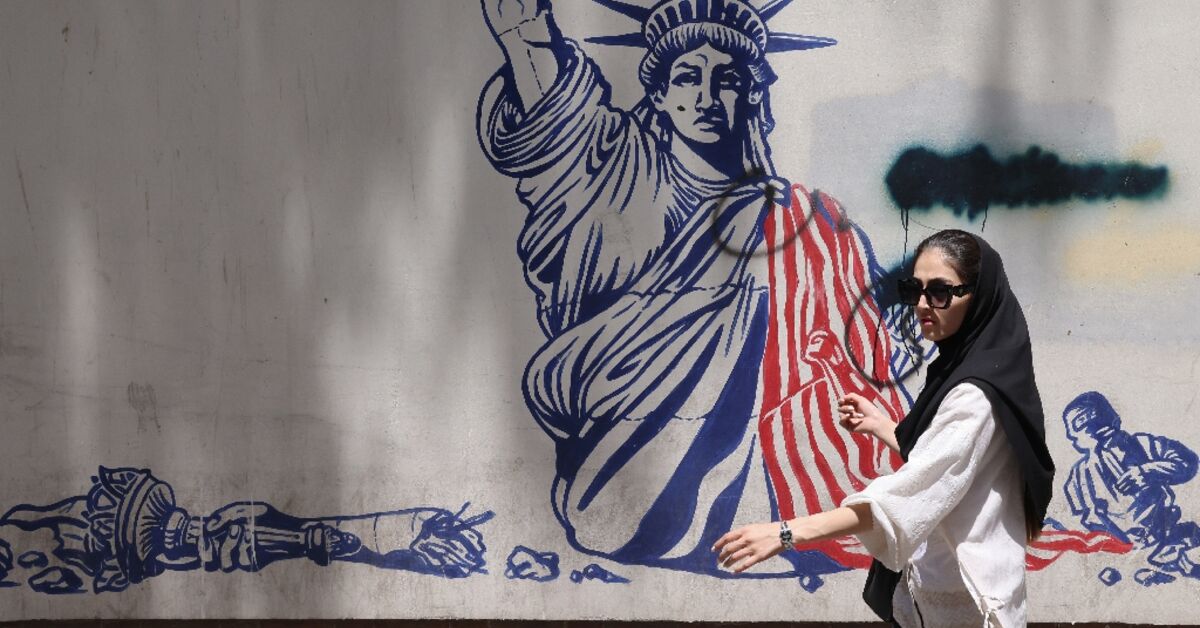Oman said Thursday it would host a sixth round of nuclear talks between Washington and Tehran over the weekend, amid escalating tensions between the long-time foes and reports of an imminent Israeli attack on Iran.
Despite reporting progress in earlier rounds, Tehran and Washington have sharply disagreed over Iran’s uranium enrichment in recent weeks, with Tehran threatening to target US military bases in the region in the event that the talks fail and conflict erupts.
Tensions reached a fever pitch this week as Washington ordered the evacuation of personnel from the Middle East and US media reported that Israel appeared to be preparing an attack on Iran.
Oman’s Foreign Minister Badr Albusaidi nonetheless confirmed in a post on X on Thursday that the “6th round of Iran US talks will be held in Muscat this Sunday”.
Iran meanwhile vowed to build a new uranium enrichment facility and “increase signficantly” its production after the UN nuclear watchdog passed a resolution condemning Tehran’s “non-compliance”.
The United States and Iran have held five rounds of talks since April to hammer out a new nuclear deal, replacing a 2015 accord that President Donald Trump abandoned during his first term in office.
Trump appeared to shift his previously optimistic tone this week, saying he was “less confident” a deal could be reached, and on Wednesday ordered US personnel to be moved from the potentially “dangerous” Middle East.
– ‘Suffer more losses’ –
Israel has repeatedly warned that it could attack Iranian nuclear sites, vowing to stop its arch foe from acquiring an atomic bomb, which Tehran has consistently denied it was seeking.
The US president says he has pressed Israeli Prime Minister Benjamin Netanyahu to hold off from striking Iran’s nuclear facilities to give the talks a chance, but has increasingly signalled that he is losing patience.
Iran however warned it would respond to any attack.
“All its (US) bases are within our reach, we have access to them, and without hesitation we will target all of them in the host countries,” Iran’s Defence Minister Aziz Nasirzadeh said in response to US threats of military action if the talks fail.
“God willing, things won’t reach that point, and the talks will succeed,” the minister said, adding that the US side “will suffer more losses” if it came to conflict.
A US official had earlier said that staff levels at the embassy in Iraq were being reduced over security concerns, while there were reports that personnel were also being moved from Kuwait and Bahrain.
An Iraqi security official said it was “not complete evacuation” and the US was taking precautionary measures in case of the failure of talks.
Meanwhile, a spokesperson for the US embassy in Manama said the mission “has not changed its staffing posture and remains fully operational”.
– ‘Strategic mistake’ –
The latest developments come amid a diplomatic standoff over Iran’s uranium enrichment, which Tehran has defended as a “non-negotiable” right while Washington has called it a “red line”.
Iran currently enriches uranium to 60 percent, far above the 3.67-percent limit set in the 2015 deal and close though still short of the 90 percent needed for a nuclear warhead.
Iran’s supreme leader Ayatollah Ali Khamenei, who has the final say in major state policies, has recently said enrichment is “key” to Iran’s nuclear programme and that the United States “cannot have a say” on the issue.
On May 31, after the fifth round of talks, Iran said it had received “elements” of a US proposal for a nuclear deal, with Araghchi later saying the text contained “ambiguities”.
Iran has said it will present a counter-proposal to the latest draft from Washington, which it had criticised for failing to offer relief from sanctions — a key demand for Tehran, which has been reeling under their weight for years.
On Tuesday, the International Atomic Energy Agency’s board of governors adopted a resolution drafted by the US, Britain, France and Germany, condemning Iran’s “non-compliance” with its nuclear obligations.
In response, Iran’s foreign ministry and atomic agency said orders had been issued “to launch a new enrichment centre in a secure location”. The agency added that uranium enrichment would “increase significantly”.
The resolution could lay the groundwork for European countries to invoke the “snapback” mechanism under the 2015 nuclear deal, reinstating UN sanctions in response to Iranian non-compliance — an option that expires in October.
(Except for the headline, this story has not been edited by PostX News and is published from a syndicated feed.)

